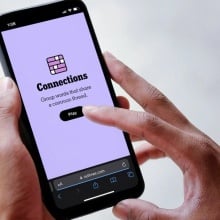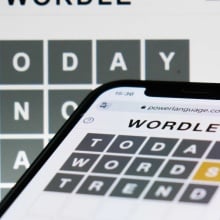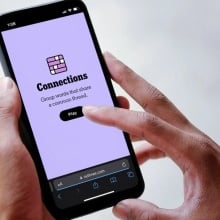Modern relationships continually evolve. Many of us are shaping our relationships in non-traditional ways, moulding them to suit our personal preferences, desires, goals and situations rather than adapting ourselves to traditional relationship styles. For some people, this looks like polyamory or open relationships. For others, it might look like a queer platonic relationship (QPR), also known as a queer platonic partnership (QPP).
We spoke to two sex and relationships experts to understand what queer platonic partnerships are, what they involve, who typically enters this type of relationship, and the pros and cons.
What is a queer platonic partner?
Sex educator Erica Smith says a queer platonic partner is someone that you have a close intimate relationship with, and choose to do things together that are typically done by romantic partners: sharing a home, sharing responsibilities, considering each other to be family, maybe even raising children together. But the relationships are not romantic, and sometimes not sexual either.
"Often, people who consider themselves asexual or aromantic are in queer platonic relationships," Smith says. Though, other queer people may decide to enter these types of partnerships too.
What are the benefits to having a queer platonic partner?
For many people, being part of a queer platonic relationship involves companionship, family, support, love, and "someone to share all the big life things including expenses with," according to Smith.
Rebecca Alvarez Story, a sexologist and co-founder of sexual wellness brand Bloomi, adds that as society is evolving and starting to recognise and value different relationships, people are realising that there aren't one-size-fits-all connections and are open to new experiences. Queer platonic partnerships provide space for all kinds of love and emotions just as a romantic relationship would. Sometimes that kind of love even serves them better, as there is less pressure.
Smith also notes that affordability might affect someone's decision to enter a relationship like this. "So many people can't afford rent or a mortgage these days, but being in partnership with someone makes things like housing more accessible. Some queer platonic partners may even choose to marry for the legal and financial benefits. In the U.S., this includes health insurance," she explains.
Alvarez Story notes that the current cost of living crises in the UK, U.S., and Europe will contribute to this even more so. "The increasing cost of living and a need for the everyday benefits of a life partnership and community, such as co-parenting and financial sharing, might lead people to a queer platonic relationship." This is especially true if someone finds themselves needing two incomes in a household to fulfill their life but are uninterested in pursuing sex or romance, such as asexual or aromantic people.
"After the COVID period, we have all gotten reminded of just how important socialising and having a reliable person nearby is, as well," she adds.
Why are more people entering queer platonic relationships?
It's hard to track exactly how many people are in queer platonic relationships, and it should probably stay that way (do we really need that much surveillance in our intimate relationships?) but it seems like they're on the increase.
A quick scroll through your For You page on TikTok reveals a number of sweet stories of friends marrying without romantic love or sexual attraction in order to buy a house and raise children together, and we also see examples on our screens. Many look to Hannah and Elijah in HBO's Girls as the purest example of an attempted queer platonic relationship, as the two LGBTQ+ characters agree to raise Hannah's child together in the home they already cohabit, and frequently sleep in the same bed and cuddle, as romantic partners would, for comfort. Some even look to Marlin and Dory from Pixar's Finding Nemo, who many suggest are queer-coded in their platonic cohabiting and raising of Nemo.
Smith says that more people, especially young people, are increasingly defining partnership for themselves outside the small boxes that have been presented to them. This is why you may have seen more queer platonic partnerships popping up lately on your Instagram feed, or portrayed in the media.
After all, why do we elevate romantic relationships above all other relationship structures? We know there have been societal and governmental incentives to be in monogamous marriage for centuries — but it's 2024, and the way we look at partnership is finally shifting.
"Queer platonic partners challenge conventional ideas of what partnership is, and I think this is so appealing," Smith says.
Are QPRs just for people who can't find 'real' love?
There may be an assumption that those who have queer platonic relationships do so because they can't find a "real" relationship, but this isn't always the case. Some people have actively chosen to be part of a queer platonic relationship when traditional partners or relationships were available to them.
But Alvarez Story says this is very much a misconception. "Often those who identify as asexual or aromantic may be interested in engaging in queer platonic relationships. But, sometimes, people simply like the person and want to explore a deeper friendship that's different from any other relationships they had in the past," she says.
Queer platonic relationships don't have specific rules and partners involved and those participating get to decide on how they want to engage and what type of commitment they are willing to have, so they're a great fit for anyone who feels constrained by a more traditional relationship style. For a lot of people, shacking up with a friend is the definition of freedom.
Really, the choice to pursue friendship that looks a lot like a cohabiting relationship over "the real thing" shouldn't come as a surprise. Internet discourse (and probably most real-life conversations too) has been rife with a shared disappointment with modern dating lately. 2021 research from Hinge shows 61 percent of the app's UK users feel overwhelmed and fatigued when it comes to dating. Scroll through the "dating" search on X to see how visceral this exhaustion is. "Dating is actually a sick and twisted game," writes one user. "This dating era is horrible," writes another.
With so many of us feeling this tired, unhappy, and even depressed about dating, is it any wonder why some of us would rather commit to a life with a friend we love, trust, and feel confident we won't tire of?
For some people, a queer platonic relationship doesn't rule out sex or romantic love anyway. Some people in these set-ups will continue to date or have sex casually outside of the partnership, much like any open relationship.
The only reason anyone looks down on this type of relationship, according to Smith, is because society has elevated romantic partnerships as the most important kind of relationship there is, and "that kind of thinking runs deep!"
Are there any cons involved with a queer platonic relationship?
Smith notes that queer platonic relationships aren't really legally recognised unless you have chosen to get married just as two people who are in love might, so this is something to keep in mind before pursuing a queer platonic relationship.
Additionally, Alvarez Story warns that sometimes queer platonic relationships can result in one-sided romantic feelings. "It might be that one partner develops deeper romantic aspirations or sexual desire towards their partner and this isn't mutual. There can be jealousy and sadness if one partner engages in some type of relationship on the side."
She adds that, in these cases, a partner might be bothered by other relationships (no matter whether there are any deeper romantic and/or sexual aspirations involved) in the way that there's less time one can dedicate to their queer platonic partner.
For this reason, it's important to make sure the two of you are 100 percent on the same page when entering a partnership of this nature, and that you stay open, communicative and honest in case feelings develop or change.
Just like any other relationship, a queer platonic partnership doesn't have to be the be-all-or-end-all. As long as everyone involved is open and on the same page, you can try this type of partnership to see if it's right for you and your pal. You might find it's everything you ever dreamed of, or you might find yourself re-downloading the apps, or a bit of both.
Topics LGBTQ Relationships





























